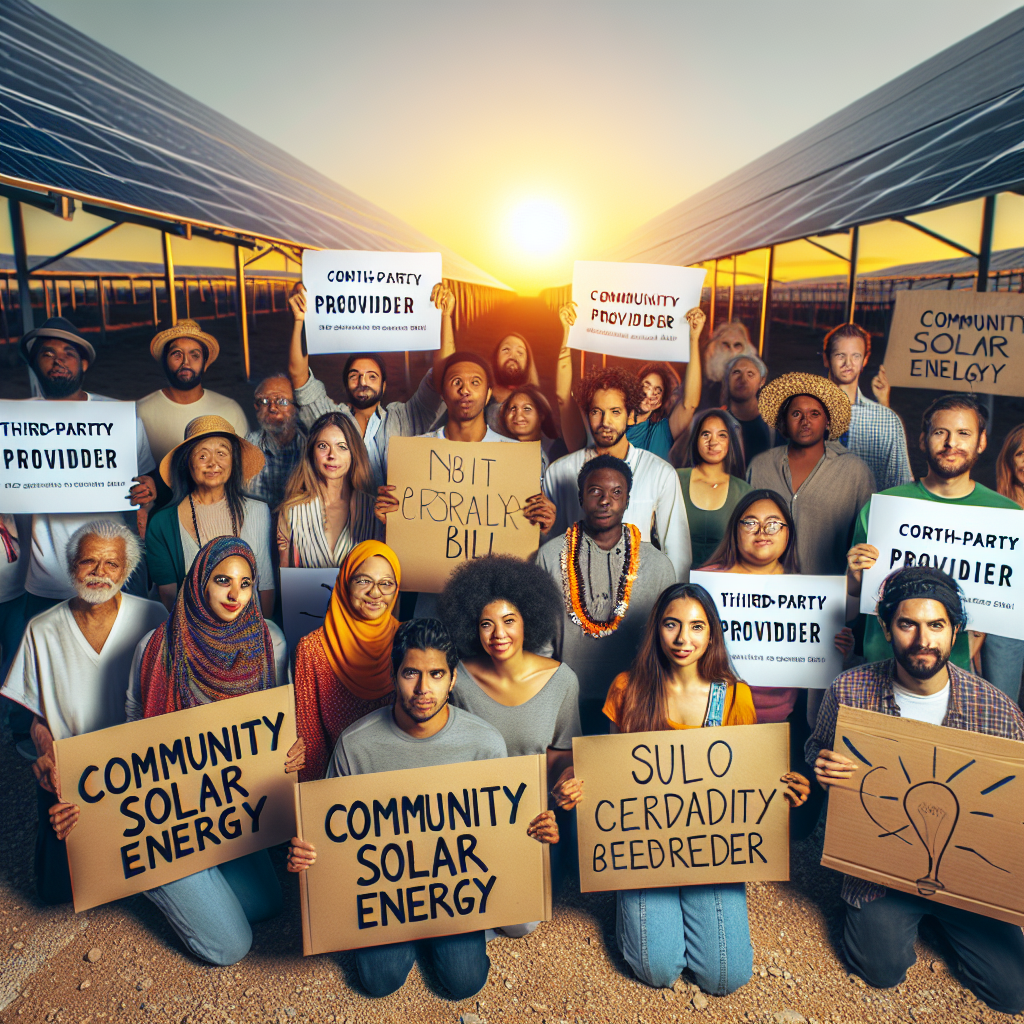Georgia Power is against the implementation of third-party community solar initiatives for various reasons. There is also apprehension that this legislation may be expanded to include EMCs. In this article, we will delve into the details of this issue, providing updated information and relevant statistics. Our aim is to present the facts in a clear and approachable manner, while keeping a professional and friendly tone. We will explore different perspectives and angles to give a comprehensive and well-rounded view of the topic. Our goal is to make this article irresistible to read, capturing the reader’s interest from start to finish.
Georgia Power has expressed opposition towards third-party community solar projects. These initiatives allow individuals and businesses to invest in solar energy systems and receive credits on their utility bills for the energy produced. However, Georgia Power argues that these projects would result in higher costs for their customers. They also claim that the current legislation does not adequately protect their customers’ interests.
One of the main concerns raised by Georgia Power is the potential increase in costs for their customers. They argue that the implementation of third-party community solar projects would result in higher electricity rates for all customers, including those who do not participate in the program. This is because the utility company would have to cover the costs of purchasing the excess energy produced by these projects.
Another issue raised by Georgia Power is the lack of consumer protection in the current legislation. They argue that the current laws do not provide enough safeguards for customers who participate in these projects. For example, there is no guarantee that the solar energy systems installed by third-party companies would meet safety and quality standards. This could potentially put customers at risk and result in additional costs for Georgia Power to rectify any issues.
In addition to these concerns, there is also apprehension that the legislation could be expanded to include EMCs (Electric Membership Corporations). EMCs are non-profit, member-owned electric cooperatives that provide electricity to rural areas in Georgia. These cooperatives are not regulated by the Georgia Public Service Commission, unlike Georgia Power. Therefore, there are concerns that if the legislation is extended to include EMCs, it could result in even higher costs for their customers.
Despite these concerns, there are also arguments in favor of third-party community solar projects. Proponents argue that these initiatives would promote the use of renewable energy and reduce dependence on fossil fuels. They also argue that it would provide an opportunity for individuals and businesses to invest in clean energy and reduce their carbon footprint.
In conclusion, Georgia Power opposes third-party community solar projects for various reasons, including potential cost increases for customers and lack of consumer protection. There are also concerns that the legislation could be expanded to include EMCs, which could result in even higher costs for their customers. However, there are also arguments in favor of these initiatives, highlighting the potential benefits of promoting renewable energy. It is important for all stakeholders to carefully consider these factors and come to a balanced and informed decision.

